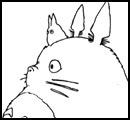“W.” digs as deep as it can into the mind of George W. Bush. The result is a surface-level movie about a surface-level person. Except for a need to impress his “Poppy” and a spiritual awakening, no other explanations are needed for his aspirations.
To his credit, the usually slippery, left-wing Oliver Stone mostly sticks to the facts in “W.” If the whole thing feels like re-watching painful recent history, so be it. The serial failures of Bush’s youth and presidency are made clear with this approach. People watching this movie in the future will stammer, “It couldn’t possibly have been like this!” To which we will solemnly reply, “Yes. That actually happened in this country.”*
Ignoring the scattered dream sequences, the few moments treated as fact that clearly go off-topic weaken the film. In an extended, overwritten war room scene, Dick Cheney proclaims that, in order to secure Middle Eastern oil, there is “no exit” from Iraq. Even though Cheney thought this, he never said it so dramatically to a room of people.
Later, Josh Brolin (perfectly cast) recites Bush’s infamous “Fool me once” quote. The only problem is: he does it at the dinner table. As anybody who’s seen “Fahrenheit 9/11” knows, this quote comes from a public speech.
Like Jr., George Bush Sr. is treated the way he deserves. To wit, James Cromwell’s character’s inner life is the most plumbed in “W.” Bush Sr.’s decision to end the Gulf War after one hundred hours is the reason believed by the rest of his family for Bill Clinton’s 1992 victory. To his dismay, Jr. takes out Hussein in order to get re-elected. It’s an extension of the life-long “disappointment” father feels towards son. (Sorry: I know it’s crass to compare young and old W in this way, since the latter’s decisions have destroyed the world.)
W’s well-cast cabal members fall into one of three groups. Cheney (Richard Dreyfuss) and Rove tell him what to do. Powell (Geoffrey Wright) and Tenet (Bruce McGill**) meekly raise concerns. Rumsfeld (Scott Glenn), Rice (Thandie Newton), and everyone else sycophantically follow him.
If all this sounds didactic and simple-minded, that’s the point. The strength of the film is its adherence to the primitive, “us vs. them” mentality of the Bush administration.
*Thanks to Laura for the theoretical conversation. She also brought up how awesome and creepy this movie would have been if directed by David Lynch. Imagine Toby Jones’ Karl Rove (even more troll-like than in real life!) entering Bush’s head, appearing in front of red curtains, and speaking the secrets of re-election in tongues.
**Jack Dalton from MacGyver!
To his credit, the usually slippery, left-wing Oliver Stone mostly sticks to the facts in “W.” If the whole thing feels like re-watching painful recent history, so be it. The serial failures of Bush’s youth and presidency are made clear with this approach. People watching this movie in the future will stammer, “It couldn’t possibly have been like this!” To which we will solemnly reply, “Yes. That actually happened in this country.”*
Ignoring the scattered dream sequences, the few moments treated as fact that clearly go off-topic weaken the film. In an extended, overwritten war room scene, Dick Cheney proclaims that, in order to secure Middle Eastern oil, there is “no exit” from Iraq. Even though Cheney thought this, he never said it so dramatically to a room of people.
Later, Josh Brolin (perfectly cast) recites Bush’s infamous “Fool me once” quote. The only problem is: he does it at the dinner table. As anybody who’s seen “Fahrenheit 9/11” knows, this quote comes from a public speech.
Like Jr., George Bush Sr. is treated the way he deserves. To wit, James Cromwell’s character’s inner life is the most plumbed in “W.” Bush Sr.’s decision to end the Gulf War after one hundred hours is the reason believed by the rest of his family for Bill Clinton’s 1992 victory. To his dismay, Jr. takes out Hussein in order to get re-elected. It’s an extension of the life-long “disappointment” father feels towards son. (Sorry: I know it’s crass to compare young and old W in this way, since the latter’s decisions have destroyed the world.)
W’s well-cast cabal members fall into one of three groups. Cheney (Richard Dreyfuss) and Rove tell him what to do. Powell (Geoffrey Wright) and Tenet (Bruce McGill**) meekly raise concerns. Rumsfeld (Scott Glenn), Rice (Thandie Newton), and everyone else sycophantically follow him.
If all this sounds didactic and simple-minded, that’s the point. The strength of the film is its adherence to the primitive, “us vs. them” mentality of the Bush administration.
*Thanks to Laura for the theoretical conversation. She also brought up how awesome and creepy this movie would have been if directed by David Lynch. Imagine Toby Jones’ Karl Rove (even more troll-like than in real life!) entering Bush’s head, appearing in front of red curtains, and speaking the secrets of re-election in tongues.
**Jack Dalton from MacGyver!


3 comments:
Your theoretical conversation is a good reminder that the only possibility is that things will get better, or at least a little more sane (knock on wood).
I can't believe you went to see this movie! I think it would be too eerie. I have issues about watching movies about famous people in very recent history (ie The Queen). It makes my head feel funny.
It was a free screening...
did you see josh brolin on snl talkin' 'bout how he got into character? 'you have to hold your hands out like this... like you've written the answers to a test on them and you don't want to smudge them.'
Post a Comment